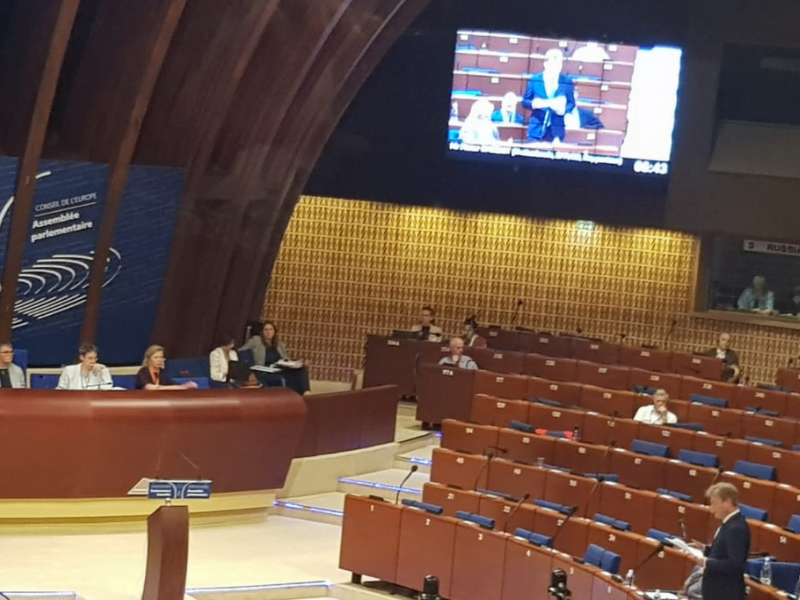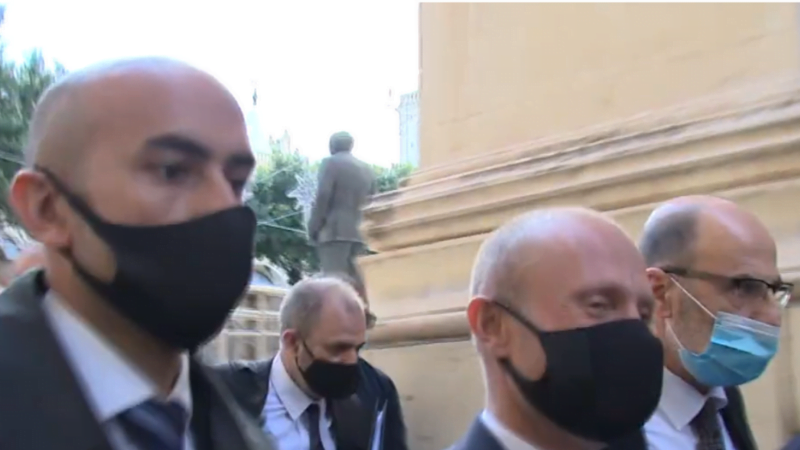As expected, disgraced former prime minister Joseph Muscat’s brazen show at the public inquiry on Friday did not disappoint. True to form, Muscat chose to follow deposed leaders Slobodan Milošević and Saddam Hussein by standing in the dock, chillingly questioning the legitimacy of the tribunal holding him to account.
Joseph Muscat’s political career undeniably ended in November 2019. Muscat had to go, and for good reason. Malta risked drowning with him and his right-hand man, Keith Schembri.
We all remember that long, cold night when Yorgen Fenech’s request for a presidential pardon in relation to Daphne Caruana Galizia’s assassination, in exchange for lurid details on Muscat’s government’s corrupt deals and involvement in the murder, was refused.
No amount of spin or manufactured praise can erase that memory or resuscitate his career. Some dark stains simply do not wash off.
A toxic mix
Internationally, outside tiny Malta’s bubble of denial, Muscat is a pariah, an outcast, consigned to the gallery of corrupt has-beens. There is no denying this.
Yet in Malta, the mood is more nuanced. The country’s notoriously slow criminal justice system appears to be miles away from any decisive action, allowing Muscat and key people around him to languish for years in what has come to resemble Schrödinger’s cat thought experiment – they are simultaneously under police ‘investigation’ and not.
Institutional paralysis coupled with Malta’s highly partisan political scene is a toxic mix.
Much like the Republicans in the US unwilling to distance themselves from Donald Trump’s destructive swan song, Muscat has the governing Maltese Labour Party (PL) in his deadly vice. It seems the Party is still unsure whether to die of suffocation or risk bleeding to death by removing it.
This was evident on Friday morning.
Muscat, now a shadow of a man, arrived at the courthouse propped up by a veritable entourage encompassing two of PL’s go-to lawyers (Pawlu Lia and Charlon Gouder), PL President (Ramona Attard), his assistant (Mark Farrugia, now also the producer of PL’s ‘Mija’ a multi-part documentary now running on One re-papering the PL’s history), the CEO of Malta Enterprise (Kurt Farrugia), and, perhaps in anticipation of socially-distanced flying eggs, at least five bodyguards, some even borrowed from Prime Minister Robert Abela.
PL may have, at least formally, cut Muscat’s right and left-hand men loose but Muscat, toxic hold and all, remains firmly in their bosom.
https://www.facebook.com/63887949740/posts/10160699557789741/?d=n
Vocal sections of Malta’s public sphere also remain in the throes of what can only be described as a mix of a teenage crush and Stockholm Syndrome – that irrational, lingering sense of attachment that hostages get towards their oppressors.
This too became painfully apparent on Friday.
Muscat’s hands may have been trembling as he delivered a 2,121-word pre-prepared opening speech but this didn’t stop the word “disgraced” from disappearing from reports, only to be replaced with gushing variants of “like the Muscat of old” or how Muscat valiantly fought “like a boxer in the ring”.
Anyone who expected him to meekly and honestly testify at the public inquiry clearly grossly underestimated both Muscat and what is actually at stake here. In fact, Prime Minister Abela followed Muscat’s testimony with a statement that the public inquiry should end next week even as the journalist’s family issued a statement for the inquiry to be allowed to run its course.
The political interference in #DaphneCaruanaGalizia public inquiry is alarming. After one former PM attacked the board last week, the current PM now wants to shut it down. This inquiry must be allowed to complete its work properly and @MaltaGov must take heed of its conclusions. pic.twitter.com/9zBdhSiO5Y
— David Casa (@DavidCasaMEP) December 7, 2020
The public inquiry is not a favour but an obligation
Under human rights law, a State has a duty under the so-called ‘Right to Life’ not only to not kill its citizens but also to proactively prevent the loss of life.
When State involvement (whether active or through inaction) in a death is alleged, the European Court of Human Rights has held countless times that the State must promptly hold an independent, effective public inquiry into the State’s involvement to ensure accountability.
This is settled case law and trying to deny or contest this is an exercise in futility and disrespect for human rights obligations.
There have been credible claims of State involvement, whether through inaction or worse, in the assassination of Caruana Galizia in October 2017. With every new hearing, these claims only get stronger.
Muscat resisted and delayed the setting up of an inquiry for two years. Before Muscat caved in, his government had already been harshly warned by the UN, the Council of Europe and the European Parliament.
The public inquiry was announced just five days short of an ultimatum by the Council of Europe following which sanctions against Malta would have likely followed.

Council of Europe Special Rapporteur Pieter Omtzigt presenting his report on Malta during the plenary debate in June 2019.
Even then, the original terms of the inquiry and the original members of the inquiry, both nominated by Muscat were lambasted by the Council of Europe’s rapporteur on Malta as being ineffective and insufficiently independent. Muscat was forced to change both.
Against this background, Muscat’s opening line of his five-page monologue telling the judges that he “personally took the unprecedented step of appointing this inquiry” because he “wanted to ensure that things are done properly”, as though deserving of thanks, is disturbing.
Muscat begrudgingly established an inquiry into potential State involvement in a murder as was his obligation under the European Convention of Human Rights – and he even tried to do far less than the minimum the first time around.
The charge sheet in the case of ‘The People vs Joseph Muscat’ focuses primarily on whether or not Muscat’s administration caused, knew, or should have known about the threat to Caruana Galizia’s life; whether it failed to take the necessary steps to prevent the loss of her life; and whether it has fulfilled and is fulfilling its human rights obligation to protect individuals whose lives are at risk from criminal acts, in particular in the case of journalists.
There is also the question of ensuring effective criminal law provisions are in place to avoid the development of a de facto state of impunity for crimes in Malta.
‘If you keep saying this is a political exercise then it is you politicising it’
After taking credit for establishing the inquiry, as was his obligation anyway, Muscat then launched into a Trump-like tirade accusing the inquiry board of effectively conducting a “political” witch hunt and even questioning its legitimacy.
For those following proceedings closely, there has been a long covert campaign underway pushing a narrative that “the inquiry is biased” or “politically motivated”.
It was probably Labour MP Glenn Bedingfield who fired the starting gun on this particular narrative in February when he volunteered to testify at the inquiry. That same day, quiet grumbles became open claims (by MEP and former Labour Party Leader Alfred Sant, no less) that the inquiry is “fake” and “being used for political gain”.
Hardly a day goes by now without that narrative being repeated online, in print or on the PL’s multiple media channels.
https://www.facebook.com/bedingfieldg/posts/2445118722463507
Matters have degenerated to such an extent that not only is the PL now openly pushing a discrediting narrative of a “pre-ordained result” on TV but exponents are now actively inciting against the judges and the media.
So much for respect for the institutions.
Populists and autocrats alike, ranging from Vladimir Putin with the Litvinenko inquiry to Trump with the Mueller investigation, will always seek to brand anything uncomfortable as “partisan”, the convenient ‘us against them’ card.
Suddenly, no matter how serious the matter at hand, be it murder or treason, it becomes something that can be draped with a flag (“the other”) and countered by waving another political flag (“us”) more vigorously.
It is against this background that Muscat’s former ‘star’ Minister Konrad Mizzi tried to use this convenient narrative as his ‘get out of jail free’ card. First, he refused to appear before the public inquiry and then, after being threatened with contempt of court, refused to answer questions claiming a ‘right to silence’.
It’s the people who stand to lose
Muscat’s defiant admonition of the inquiry board for asking “irrelevant questions” and “ignoring the good he did” comes on the back a 10-month campaign and steps it up another notch.
An inquiry is not an exercise in praise. Human rights law mandates the State to take a long, hard look at what went wrong or could have gone wrong and learn the lessons from it to prevent a repeat.
By sowing or perpetuating toxic “partisan” narratives upfront, not only are we witnessing an example of what went wrong but confirming there is no guarantee there won’t be a repeat. The only ones who lose in this zero-sum game are the people.
Muscat’s aides may claim on Facebook that “he never instigated hate”, but he never condemned it either. Equally, if, as Muscat says, the opposition is and has been non-existent, then who else can be blamed for raising the political temperature?
Judge Mallia summed it up well during Muscat’s reluctant testimony by pointing out that it is in fact he who is “politicising questions” by labelling them as political.
https://www.facebook.com/397851683596055/posts/3459154144132445/?d=n
The inquiry board now has first-hand evidence of this “partisan” discrediting strategy which has been employed repeatedly – from discrediting FIAU or police investigations (“written to be leaked”) to Caruana Galizia herself by, in Muscat’s own words, branding her as “the opposition” and asking parliamentary questions about the cost of her police protection.
We need to remember that this inquiry relates to an assassination and it is aimed at preventing future ones. If we respect human rights, then our place is to ensure that the inquiry is protected and its findings respected by the government. Anyone seeking to discredit the inquiry, whether trolls or MPs, is working to deny your rights too.













The stage approach to the Law Courts, was typical mafia, with the Godfather walking in front, accompanied by the typical mafia legal counsels, the dons of the mafia administrative council, and the boia bodyguards surrounding them, lest someone pelted the Godfather with rotten eggs, little realising that no stink as strong as his, could pollute the court hall.
To those who cry foul of what they call a politically motivated inquiry, my reply is that we are here dealing with a state engineered heinous assassination planned in the corridors of political power, and executed explicitly and/or implicitly by the cabinet of ministers and all their advisors, be it legal, administrative or whatever.
The only thing I found missing, is a statue of the Madonna, carried by Robert Abela, to make Her prostrate to the Godfather, on the entry of the entourage in the Court hall.
Kemm tifhem qed nghid fil-procedura li timxi biha l-Mafia?
L-ghar haga li jista jaghmel bniedem politiku minu nnifsu hija GHOGOL TAD-DEHEB. Qatt ma jista jigi emnut. Ghax jara biss hotbitu. Il-harsa tieghu tghid kollox. Min irid jifhem. In-nies taieda tajba jifhmuha din.
Excellent piece of journalism.
Labour has always played the traitors of the party are traitors of Malta game, their supporters are gullible in accepting this line. History is repeating itself, Mintoff never condoned violence, but he never condemned it, who remembers the ” Erbgha imqarbin” phrase? Joseph Muscat used his supporters to make himself a God in Maltese politics, once there he had a free ride to do what he wanted.